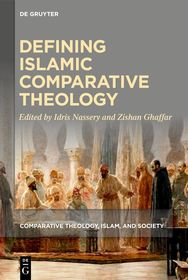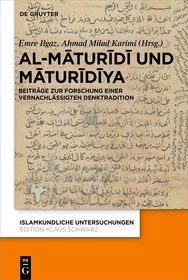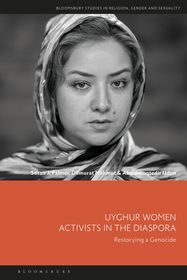
Defining Islamic Comparative Theology
Series: Comparative Theology, Islam, and Society; 1;
- Publisher's listprice EUR 119.95
-
49 749 Ft (47 380 Ft + 5% VAT)
The price is estimated because at the time of ordering we do not know what conversion rates will apply to HUF / product currency when the book arrives. In case HUF is weaker, the price increases slightly, in case HUF is stronger, the price goes lower slightly.
- Discount 5% (cc. 2 487 Ft off)
- Discounted price 47 262 Ft (45 011 Ft + 5% VAT)
Subcribe now and take benefit of a favourable price.
Subscribe
49 749 Ft

Availability
Not yet published.
Why don't you give exact delivery time?
Delivery time is estimated on our previous experiences. We give estimations only, because we order from outside Hungary, and the delivery time mainly depends on how quickly the publisher supplies the book. Faster or slower deliveries both happen, but we do our best to supply as quickly as possible.
Product details:
- Edition number 1
- Publisher De Gruyter
- Date of Publication 14 December 2025
- ISBN 9783111435398
- Binding Hardback
- No. of pages400 pages
- Size 230x155 mm
- Language English
- Illustrations 20 Tables, black & white; 10 Illustrations, black & white 700
Categories
Long description:
Over the last decades, Comparative Theology has established itself in varying methodological ways while considering the reality and plurality of religions. Although Comparative Theology can be a confessional or a non-confessional endeavor, most protagonists and theorists have been Western Christians. This could lead to the conclusion that Comparative Theology is in fact a Christian undertaking and implicitly or explicitly bound to conceptions like Christology. Furthermore, it could be argued that there is a certain asymmetry of power in the discourse between religions when the parameters of Comparative Theology are defined mainly by Christian theologians.
This volume aims to be the first step to programmatically and conceptionally explore the possibility of a genuinely Islamic Comparative Theology in a constructive endeavor. This endeavor should neither be misunderstood as an apologetic questioning of the status quo in Comparative Theology nor as a project that deconstructs Comparative Theology. Rather, by searching for new approaches from the Islamic traditions it opens up ways and forms of learning, hermeneutically complementary with prominent attitudes, methods in Comparative Theology.
More








